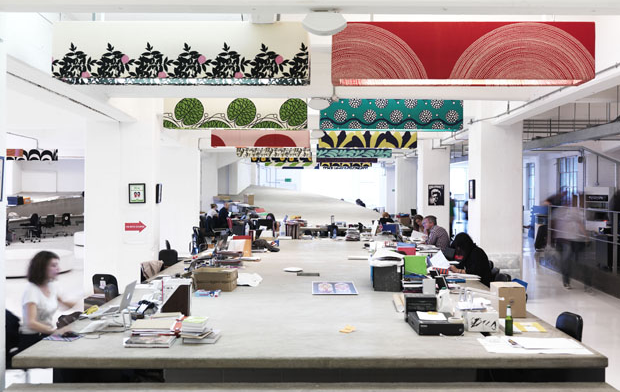There has a been a recent flurry of interest in workspace design (http://www.bbc.co.uk/news/magazine-25355618). Google, Apple and Facebook are often cited for their creative office spaces, designed to enable or even enhance the creative thinking of their staff.
However it is not clear if a creative office space stimulates creative thinking, or whether it is the elimination of bad office design that appears to free up the minds of workers (i.e. workers may have been creative already, but just get it sucked out of them by a poor environment). After all did the innovative and creative workers of the past have wacky working environments (maybe they were not really as creative!)?
It could be that the managers of these organisations might just be fiddling with ‘hygiene factors’, the things that Herzberg identified in the 1960s as having no positive impact on motivation, but are merely the basics that need to be sorted out (along with pay, management style, working relationships etc). Over the long term there is a risk, unless the managers at these organisations are doing something else, that their workforce may not be motivated to make a real difference to the performance of the business – will they still have leading products and services of the future or will better alternatives emerge from their competitors?
Over the past few decades it has become clear that whilst many ‘enlightened’ managers have dutifully followed the good manager mantras: developed themselves as leaders, worked on motivating staff, built trust and rapport, coached and developed, and engaged in team-building, the things that really matter is a common sense of purpose, how work is designed and what power people have over decisions and quality of the work that they do. This sounds fine in theory, perhaps, but in reality job design often sits in the lap of central departments (like HR), rather than the worker or the team, so the power even to design jobs is not at the point of knowledge – the people doing the work. The result is that managers can only be left to fiddle around the edges with team-building and cheer-leading. Or perhaps some just repaint the office.
An effective manager will learn how to understand and design work and how to engage people to ensure improved performance. An effective team will seek a clear purpose, investigate how their performance affects users, will challenge thinking, ask questions and engage in improvement.
Reading:
Herzberg, F. (1968) “One more time: how do you motivate employees?”, Harvard Business Review, vol. 46, iss. 1, pp. 53–62
BBC (2013) 10 bizarre objects found in ‘cool’ offices. BBC News Magazine. http://www.bbc.co.uk/news/magazine-25355618
Wakefield, J. (2008) Google your way to a wacky office. BBC News website. http://news.bbc.co.uk/1/hi/7290322.stm

